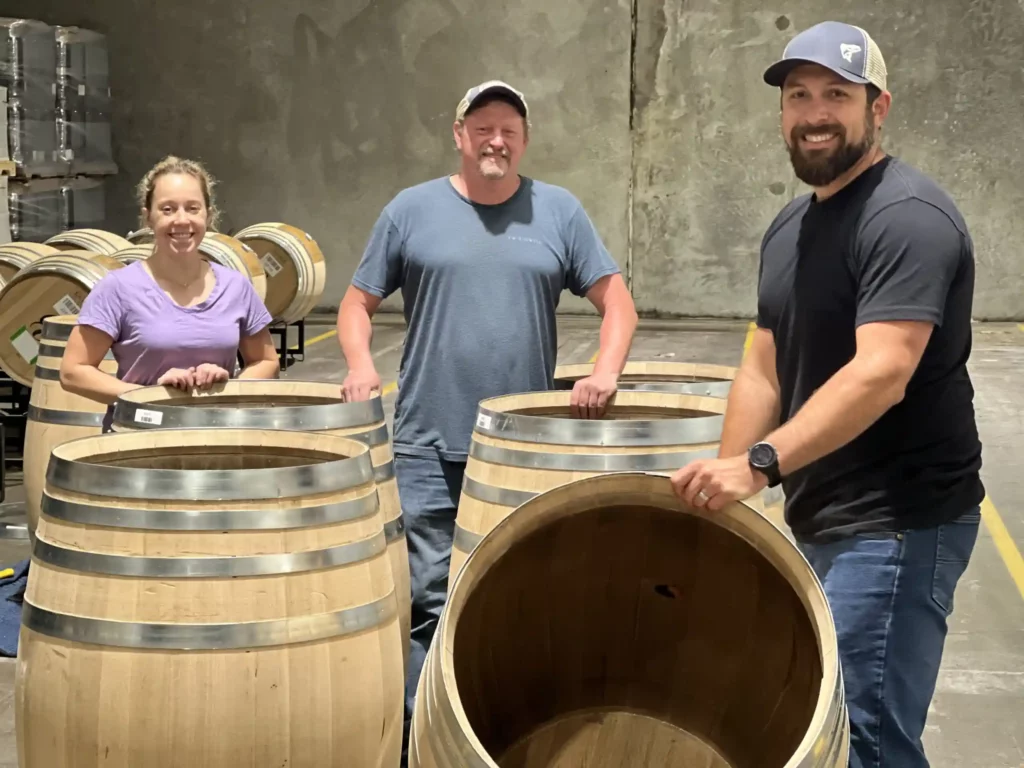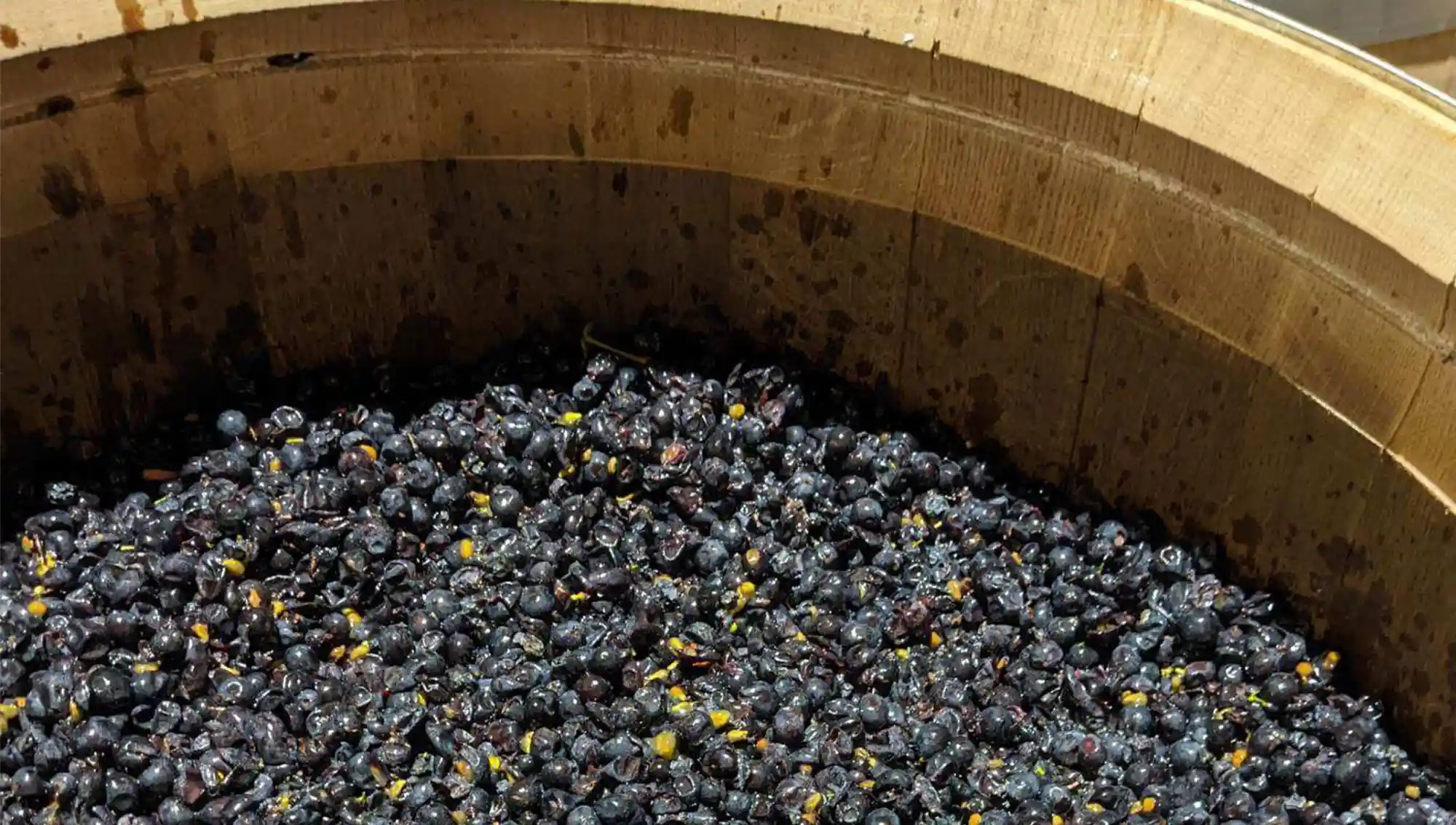Some Like It Hot
September got off to a very hot start in Paso Robles and across California, kicking the harvest season into high gear. “We probably put 500 miles on the truck here in Paso just going to and from our various vineyards, making sure everything was okay and on track,” says Winemaker Chris Rougeot.
While the heat wave definitely accelerated picking timelines in many vineyards, about half of our fruit remains on the vine as of this writing. Meanwhile, our fermenters are full and the winery is bursting with aromas of frothy new wine. In the end, this is going to go down as one of the earliest harvests on record in our 23 years of making wine at Opolo.
“We’ve seen some really nice flavor development at lower sugar levels this year,” says Winemaker James Schreiner. “That’s the saving grace. All of the ingredients of great wines were already there when hot weather landed, and we’re very happy with what we’re tasting in the new wines. The flavors are there, and we’ve got nice acidities.”
Artisans at Work
One of the best parts of the crush is discovering all of the artisanal techniques that James and Chris are employing to create our Opolo Reserve and other limited-production wines.
For example, there are several small open-top bins of Willow Creek District Syrah that are fermenting with a base of whole clusters underneath, representing about 30 percent of the wine. This method of “stem inclusion” is very labor intensive, but it is prized for bringing added body and hints of savory spice to the wine.

The winemaking team also just popped off the heads of 12 new 300-liter French oak barrels in preparation for the barrel fermentation of incoming Pinot Noir. This is another labor-intensive and expensive effort that will account for approximately 30 percent of the finished wine. Barrel fermentation for red wines is rare, but James and Chris believe in going the extra mile to create a world-class Pinot Noir. The photo here shows Enologist Skye Bruce, Chris and James with the freshly prepped barrels, and the photo at top shows one of the barrels immediately after fruit delivery.
“When you ferment the Pinot Noir in the barrel, you gain this perfect tannin integration with the new oak,” James says. Adds Chris, “It adds body and complexity without imparting heavy wood flavors. You get the best of the oak while preserving the purity of the fruit and varietal character, which is very important with Pinot Noir.”

